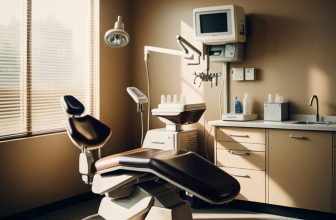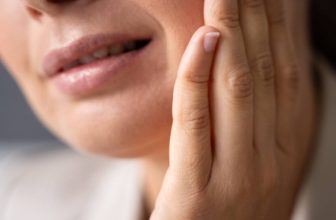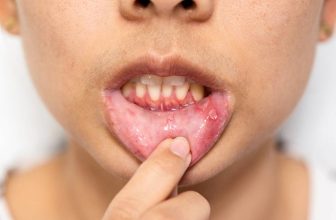Mouth injuries can be expected, especially if you have kids or are active in sports. Cuts on the gums may not happen as often as other mouth injuries, but they can still occur. Knowing how to treat a cut on the gums at home is vital so that you can help it heal and prevent infection. It’s also important to know when to seek medical treatment.
Read on to learn more about how to handle a cut on the gums and when you should call a professional.
Leading causes of cuts on gums
Your gums are a delicate part of your mouth and can be easily injured.
There are several reasons you may have cuts on your gums, including:
1. Poor oral hygiene
If you don’t brush and floss your teeth regularly, plaque and bacteria can build up on your gums, leading to inflammation and irritation.
Also, if you do these activities incorrectly, you may experience gum cuts.
2. Teeth grinding
This nighttime habit can cause tiny cuts on your gums.
3. Gingivitis
This infection of the gums causes them to become red, swollen, and bleed easily.
4. Periodontal disease
This is a more serious infection of the gums that can lead to tooth loss if not treated.
5. Sports injury
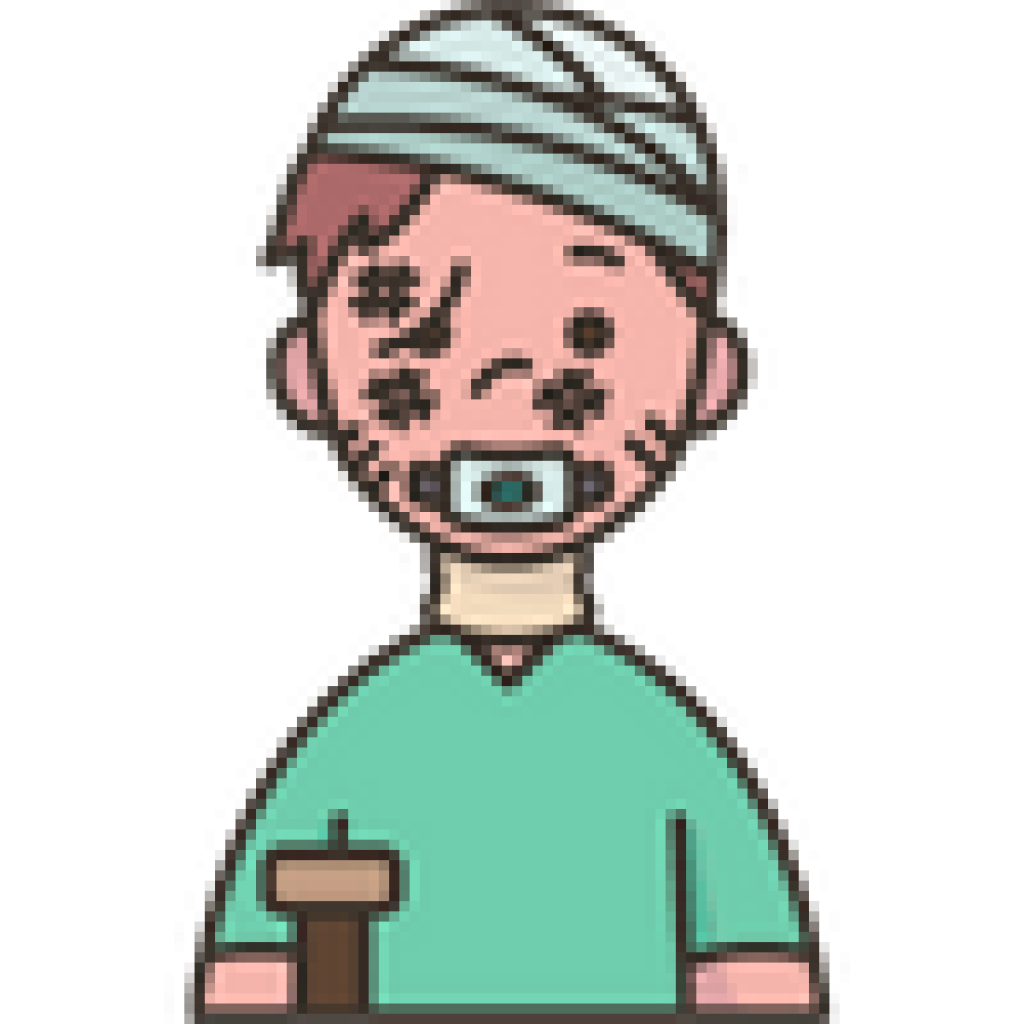
A cut on the gums can also be caused by an injury, such as being hit in the mouth with a ball or falling and hitting your mouth on the ground.
6. Sharp food
Eating hard or sharp foods can also cause cuts on your gums.
7. Dental surgery
Cuts on the gums may also be a side effect of dental surgery, such as removing your wisdom teeth.
You must see your dentist for treatment if you have any of these conditions.
Otherwise, you can help prevent gum cuts by:
- Brushing your teeth twice a day with a soft-bristled toothbrush
- Flossing at least once a day
- Using a mouthwash containing fluoride
- Avoiding tobacco products
- Wearing a mouthguard at night if you grind your teeth
- Seeing your dentist regularly for cleanings and checkups
- If you have cuts on your gums, rinse your mouth with warm water and avoid eating hard or crunchy foods until they heal.
- If you have cuts that are deep or bleeding heavily, see your dentist right away. You may need stitches or other treatment to help them heal.
How to heal a cut on your gums
If you’ve ever had the misfortune of cutting your gums, it can be a painful experience. You can do a few things to help speed up the healing process.
1. Stop the bleeding and clean your mouth
This will help stop the bleeding. You can also rinse your mouth with warm water. This will help clean the area and reduce the risk of infection.
2. Avoid crunchy foods
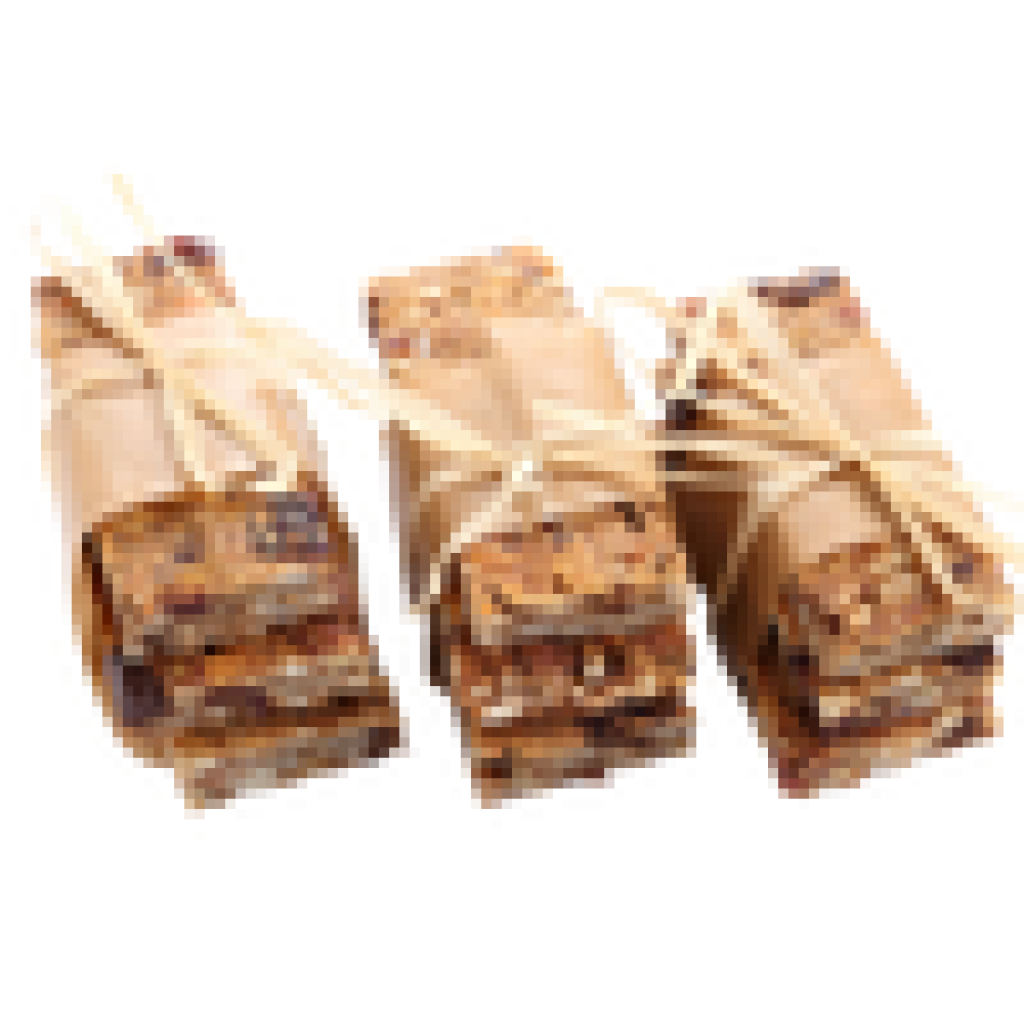
You should also avoid eating anything sharp or crunchy, as this can aggravate the wound.
3. Try to apply cold
If you have a cut on your gums, you may find relief by using a cold compress. A soft cloth cooled under running water can be applied to the area for up to 20 minutes.
4. Apply pressure
If the bleeding doesn’t stop, apply pressure to the area with a clean cloth.
5. Gently clean your teeth
Make sure to brush your teeth gently and avoid putting any pressure on the wound. Be sure to continue brushing your teeth regularly, even if the wound is still healing. This will help keep your teeth healthy and free from bacteria.
6. Try medication

If the pain is severe, you can take over-the-counter pain medication to help ease the discomfort. If you’re looking for a pain reliever to help soothe cuts on your gums, over-the-counter medications such as ibuprofen or acetaminophen may do the trick. Always consult your doctor before taking any medication, and follow dosage instructions closely.
7. See your dentist
See your dentist immediately if the cut is deep or you can’t get it to stop bleeding. You may need stitches or other treatment to heal correctly.
Taking these steps will help you heal more quickly and reduce your risk of infection. If you have any concerns, be sure to see your dentist right away.
When to see a doctor

If you have a fever, please consult your doctor. Sometimes, a fever may be a sign of infection and require antibiotics. Also, if you have an abscess or pus pocket, please see your dentist or doctor and have it removed. See a doctor or dentist immediately if the cut is bleeding excessively. You may need stitches.
If you have difficulty swallowing or breathing, please seek emergency medical attention immediately.
If you follow these simple tips, your gums should heal quickly.
How long do cuts on gums take to heal?
Most cuts on the gums will heal within a few days. However, if the cut is deep or you can’t get it to stop bleeding, see your dentist immediately. You may need stitches or other treatment to heal properly.
How to stop bleeding gums permanently
Bleeding gums can signify various dental problems, such as gingivitis or periodontitis. In many cases, bleeding gums can be stopped and the issue resolved by following a few simple steps.
If you are experiencing bleeding gums, the first step is determining the cause. Once the cause is identified, it can be treated, and the bleeding should stop. See your dentist for a diagnosis if you are unsure of the cause.
There are several ways to stop bleeding gums, depending on the underlying cause. If you have gingivitis, regular brushing and flossing can help to clear away plaque and bacteria that may be causing the problem. More aggressive treatment, such as deep cleaning or surgery may be necessary if you have periodontitis.

In addition to following a treatment plan prescribed by your dentist, there are some things you can do at home to help keep your gums healthy and stop them from bleeding. Some tips include:
- Brush your teeth at least twice a day with a soft-bristled toothbrush
- Floss at least once a day
- Use a mouthwash recommended by your dentist
- Avoid smoking and chewing tobacco
- See your dentist for regular checkups and cleanings if you are experiencing bleeding gums. These tips can help stop the problem and keep your gums healthy.
Frequently Asked Questions
Do gums grow back if cut?
In most cases, yes. However, if the cut is severe or doesn’t heal properly, it could lead to permanent damage.
What should I do if my gums are bleeding?
If your gums are bleeding, see your dentist as soon as possible. In some cases, bleeding gums can signify a serious problem, such as periodontitis.
Can I brush my teeth if I have a cut on my gum?
Yes, but be sure to use a soft-bristled toothbrush and avoid putting any pressure on the area. You may also want to rinse with warm water after brushing.
Can a cut on your gum get infected?
Yes, any cut on your body can become infected if it’s not treated correctly. See your dentist immediately if you have a cut on your gum that is bleeding or doesn’t seem to be healing.
Symptoms of an infected cut on your gum include:
- redness
- swelling
- pain
- discharge
- fever
See your dentist if you have any of these symptoms as soon as possible. You may need antibiotics to treat the infection.
How to make a cut on your gums to stop hurting?
There are a few things you can do to ease the pain of a cut on your gums, such as:
- Rinse with warm water.
- Apply pressure if the bleeding doesn’t stop.
- Take over-the-counter pain medication, such as ibuprofen or acetaminophen.
- Avoid crunchy foods.
See your dentist immediately if the pain persists or the cut is deep. You may need stitches or other treatment to heal properly.
Can a cut on gums cause it to turn red?
Yes, a cut on gums can cause them to turn red. In addition, the area may be swollen and painful. See your dentist immediately if the problem persists or the cut is deep. You may need stitches or other treatment to heal correctly.
Can a cut on the gum heal itself?
In most cases, yes. However, if the cut is deep or you can’t get it to stop bleeding, see your dentist immediately. You may need stitches or other treatment to heal properly.
Conclusion
A cut on your gums may be from something sharp or hard inside your mouth, a fall, or another injury. Most gum cuts are mild and go away independently with home care.
But if you have new or worsening symptoms, like excessive pain, bleeding, or pus, see a healthcare professional for treatment.



